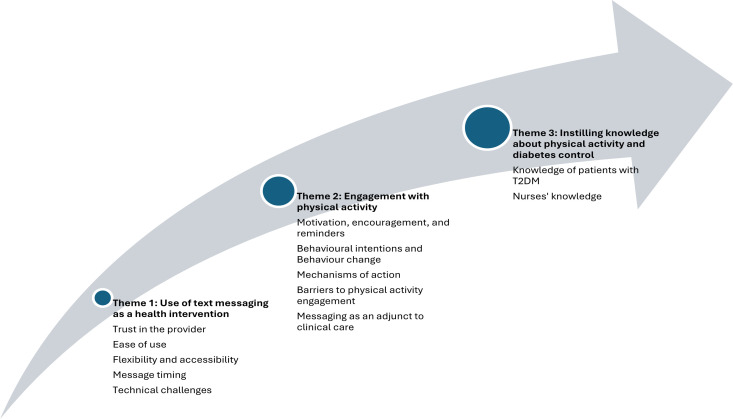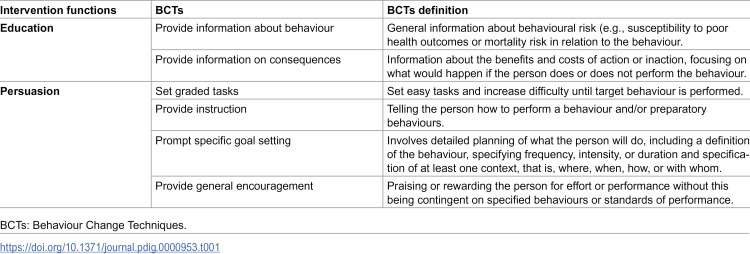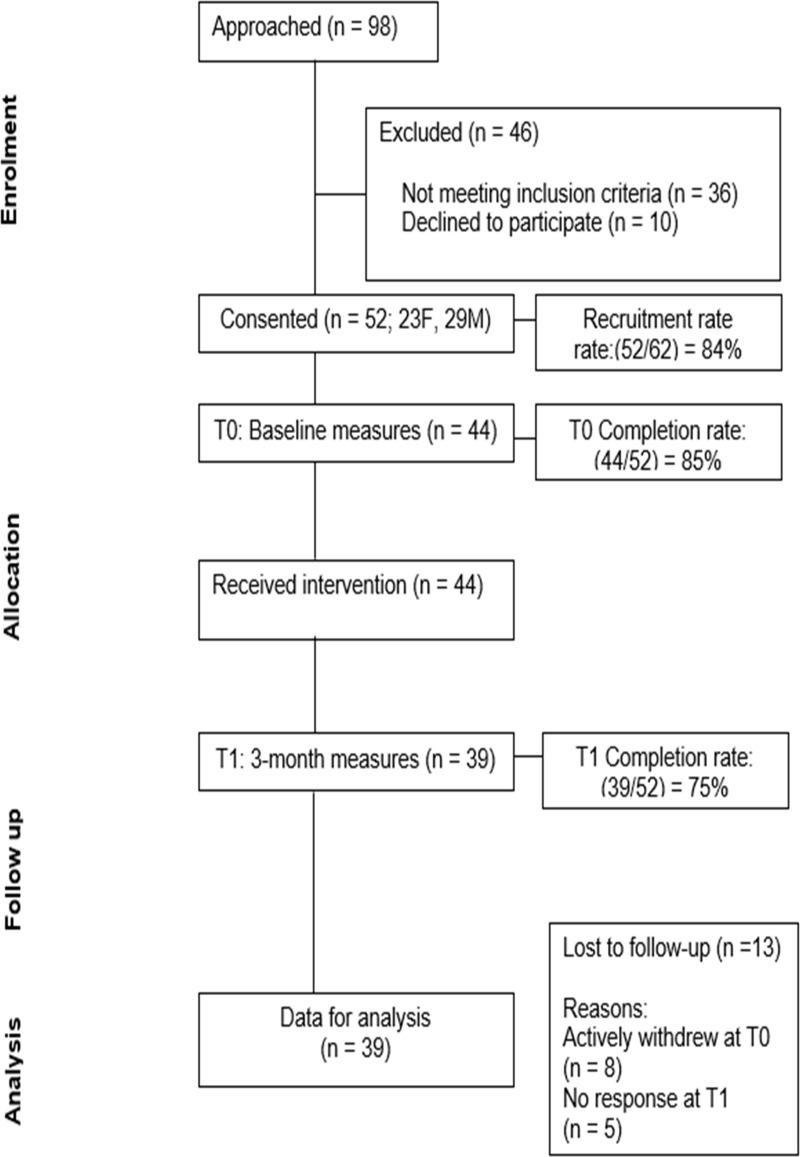ActiveText@T2D短信行为干预增加成人2型糖尿病患者的身体活动:一项前瞻性单臂可行性试验
摘要
体育活动是2型糖尿病(T2DM)自我管理的一个核心方面,但大多数沙特成年人不符合体育活动建议,也没有针对沙特成年人T2DM患者的文化量身定制的干预措施来促进体育活动。本研究是一个前瞻性的单中心,单臂可行性研究的移动短信短信干预嵌套定性研究。目的是探讨ActiveText@T2D的可行性和可接受性,这是一项为期6周的基于理论的移动短信干预,旨在促进沙特阿拉伯2型糖尿病患者的身体活动。干预发展由行为改变轮(BCW)框架和COM-B模型提供信息。ActiveText@T2D由每周2条单向短信组成,持续6周。所有参与者在基线(时间0:T0)和3个月随访(时间1:T1)时进行干预和评估。数据收集包括可行性结果(招募和保留)、临床结果(T0时临床记录的体重指数和血糖控制)和自我报告结果(T0、T1时的自我效能、身体活动和运动障碍)。在T1时收集质性访谈资料(n = 19), 11例患者(男7例,女4例,平均年龄54.5岁)和8名女护士(平均年龄31.8岁)。定量资料采用描述性分析,定性资料采用专题分析。在接触的98名参与者中,62名符合条件,52名同意(参与率84%;女性23人,男性29人;平均年龄54.82岁),44例(85%)完成基线测量并接受干预。39名参与者完成了随访测量(75%的T1保留率)。所有结果测量指标均对变化敏感:阿拉伯版疾病预防控制中心运动障碍测验(BBAQ),阿拉伯版运动自我效能量表(ESE-A),阿拉伯国际体育活动问卷(A-IPAQ)。患者和医疗保健专业人员认为这种干预措施是广泛可接受的。定性调查结果确定了三个主要主题:“使用短信作为一种健康干预手段”、“参与体育活动”和“灌输体育活动和糖尿病控制知识”。本研究证明了ActiveText@T2D的可行性和可接受性,这是一种基于理论的文化定制短信干预,适用于沙特成年T2DM患者和参与其护理的医疗保健专业人员。下一步将是一项全面确定的随机对照试验,以评估ActiveText@T2D的有效性和成本效益。协议注册:协议。io, DOI: dx.doi.org/10.17504/protocols.io.261ger217l47/v1(于08.01.2025注册)。



Physical activity is a core aspect of type 2 diabetes (T2DM) self-management, but most Saudi adults do not meet physical activity recommendations and there are no culturally tailored interventions to promote physical activity in Saudi adults with T2DM. This study is a prospective single-centre, single-arm feasibility study of a mobile SMS text messaging intervention with a nested qualitative study. The aim was to explore the feasibility and acceptability of ActiveText@T2D, a 6-week theory-based mobile text messaging intervention to promote physical activity in people with T2DM in Saudi Arabia. Intervention development was informed by the Behaviour Change Wheel (BCW) framework and COM-B model. ActiveText@T2D consisted of 2 one-way SMS text messages per week, for 6 weeks. All participants were offered the intervention and assessed at baseline (Time 0: T0) and 3-month follow-up (Time 1: T1). Data collection included feasibility outcomes (recruitment and retention), clinical outcomes (body mass index and glycaemic control from clinic records at T0), and self-reported outcomes (self-efficacy, physical activity, and barriers to exercise at T0, T1). Qualitative interview data (n = 19) were collected at T1 with 11 patients (7 male, 4 female, mean age 54.5 years) and 8 female nurses (mean age 31.8 years). Quantitative data were analysed descriptively, qualitative data were analysed thematically. Of 98 participants approached, 62 were eligible, and 52 consented (84% participation rate; 23 women, 29 men; mean age 54.82 years), 44 (85%) completed baseline measures and received the intervention. Thirty-nine participants completed follow-up measures (75% retention to T1). All outcome measures were sensitive to change: The Arabic version of the CDC Barriers to Being Active Quiz (BBAQ), The Arabic version of Exercise Self-Efficacy scale (ESE-A), The Arabic International Physical Activity Questionnaire (A-IPAQ). Patients and healthcare professionals perceived the intervention to be broadly acceptable. Qualitative findings identified three overarching themes: "use of text messaging as a health intervention", "engagement with physical activity" and "instilling knowledge about physical activity and diabetes control". This study demonstrates the feasibility and acceptability of ActiveText@T2D, a theory-based culturally tailored SMS text messaging intervention, to Saudi adult patients with T2DM and healthcare professionals involved in their care. The next step would be a full-scale definitive randomised controlled trial to assess the effectiveness and cost-effectiveness of ActiveText@T2D. Protocol registration: Protocols.io, DOI: dx.doi.org/10.17504/protocols.io.261ger217l47/v1 (registered on 08.01.2025).

 求助内容:
求助内容: 应助结果提醒方式:
应助结果提醒方式:


